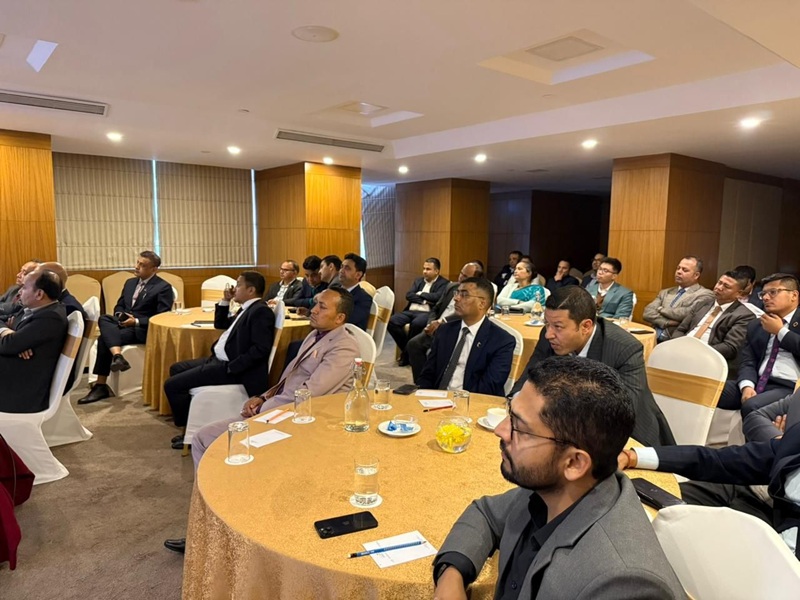Nepal’s $4 Billion Metro Rail Project: Why Hasn’t Kathmandu Started Construction?
3rd October 2025, Kathmandu
Plans to introduce a mass rapid transit system in the Kathmandu Valley, primarily focusing on metro rail and monorail, continue to stall despite years of studies, political promises, and a rapidly worsening traffic crisis.
Nepal’s $4 Billion Metro Rail Project
Experts and government officials point to massive costs, complex institutional hurdles, and political instability as the main roadblocks keeping the ambitious projects firmly on the drawing board.
Elusive Promises and Shelved Reports
The push for a rail system dates back over a decade. Early studies in 2011 had identified five potential metro rail routes across the Valley, including underground sections and a Ring Road line. A subsequent Detailed Project Report (DPR) in 2012 mapped out 77 kilometers of lines.
The 2012 estimate placed the construction cost for underground routes at NRs 1 billion per kilometer, a figure now expected to surge to NRs 1.4–1.5 billion per kilometer due to inflation.
During the 2074 (B.S.) local elections, then-Kathmandu Mayor Bidya Sundar Shakya made a high-profile pledge to complete a Ring Road monorail within three years and a metro rail DPR within two.
Following this, the Kathmandu Metropolitan City (KMC) signed agreements with the China Railway Construction Company (CRCC) in 2075 (B.S.), which submitted a preliminary feasibility study.
That study pegged the Ring Road monorail construction cost at an estimated NRs 1.16 billion. However, like the earlier metro plans, no construction work has commenced.
Major Hurdles: Finance, Terrain, and Land
The challenges facing the rail projects are multifaceted and significant. Key obstacles include the difficulty of securing the massive required financing, the complexity of acquiring land in densely populated areas, navigating the Valley’s hilly terrain, and resolving legal disputes. Compounding these issues is a perceived weakness in institutional capacity and a general lack of specialized technical expertise for such mega-projects.
Expert Opinion Favors Metro
While both metro and monorail projects have been studied, transport experts are clear in their recommendation: metro rail is deemed suitable for Kathmandu’s high-volume mass transportation needs, while monorail is considered unsuitable.
They argue that rather than conducting entirely new studies, updating the detailed 2012 metro DPR would be a more efficient path forward.
Decision Pending JICA Study
The fate of the final routes, investment model, and implementation strategy now rests with a comprehensive transport study being conducted by the Japan International Cooperation Agency (JICA).
The Department of Railways is currently awaiting the final JICA report, which is expected to be delivered within the next two to three months.
This study is anticipated to provide definitive recommendations on both the metro and monorail lines, which will inform the government’s final decision on the long-delayed project.
For more: Nepal’s $4 Billion Metro Rail Project







